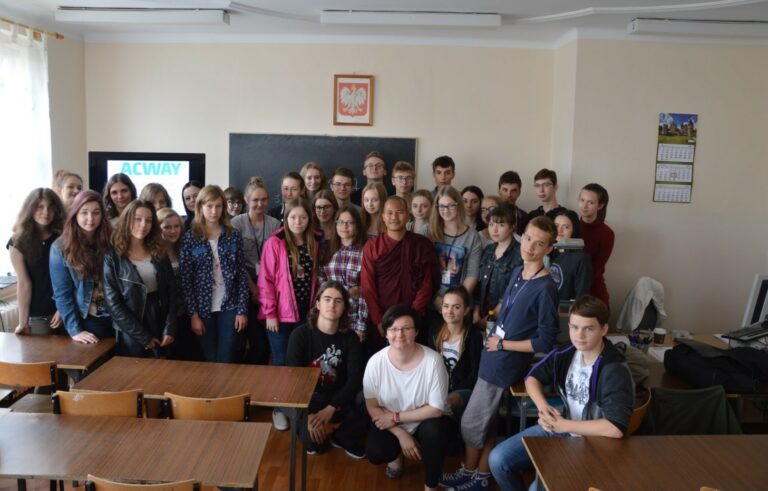Target group: High school students and local people
Partners: AKWEDUKT organization, Kwidzyn , Poland
The project was aiming to introduce high school students and local people to the Burmese Buddhist culture.
Specifically, one of the objectives was to raise awareness and understanding across and within cultures. Understanding culture is the key to opening minds to new learning and perspectives, changing attitudes, encouraging empathy and interest in peaceful coexistence and creating a stronger sense of social responsibility. It is also critical to problem-solving and building networks. In this context, the participants got a better understanding of the concepts of
identity and culture in order to apply their learning to understanding the beliefs, behaviour and attitudes of themselves and other people.
The format of the training was as follows:
Ven. Mandalar Lankara conducted two presentations targeting different social groups. The first presentation focused on 30 high school students and the second training gathered more than 65 people from the local community with different religious backgrounds. One way to learn and to better understand cultures and diversity is through research and insight in the views and traditions of representatives of other cultural backgrounds. In light of this, the workshop provided a neutral space for the participants to honestly address the challenges involved in achieving mutual understanding and build capacity for encouraging harmony among youth of diverse cultural backgrounds. Ven. Mandalar’s presentation promoted the culture of peace, global citizenship, as well as the values of coexistence, respect and tolerance. The topics elaborated on included introduction in the Burmese (Myanmar) culture and Polish culture, and comparison among the cultures in order to explore the differences and commonalities between Buddhist and Christian traditions and eastern – western values in general. The workshop was followed by Q&A with the students and local community. The participants became aware of the importance of culture and its influence in constructing their perceptions and misperceptions and on disseminating knowledge as it is the transformative method that can contribute in peacebuilding.

